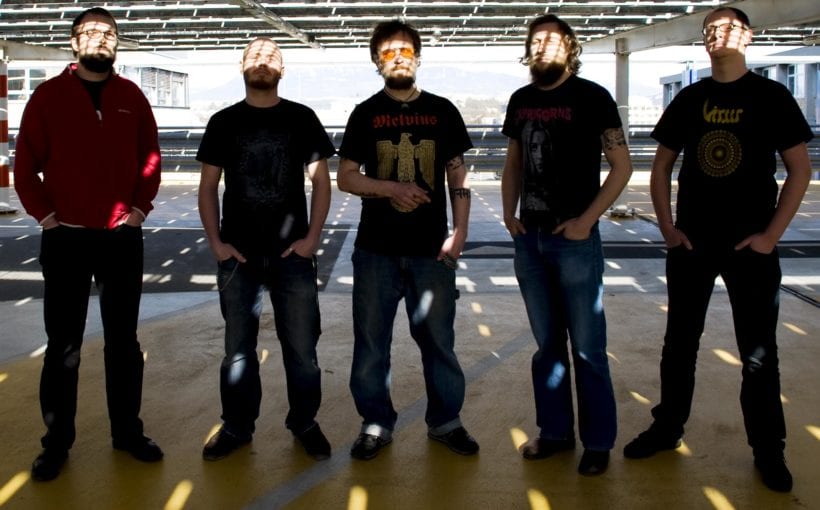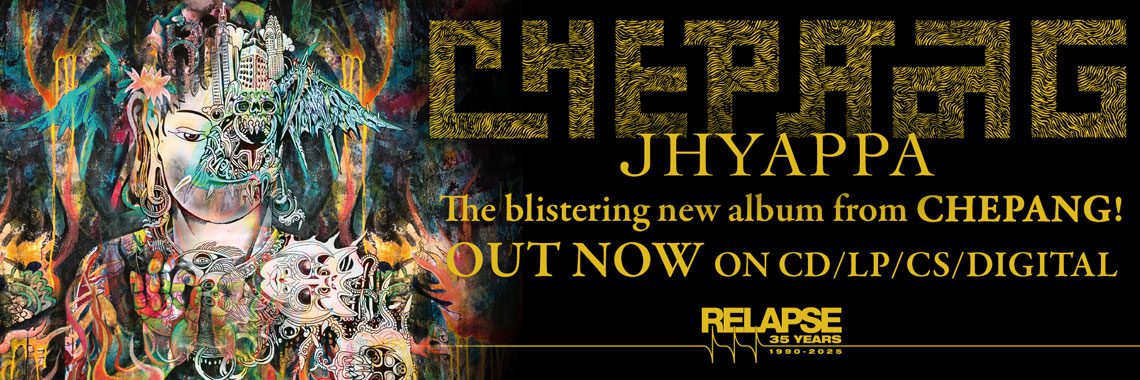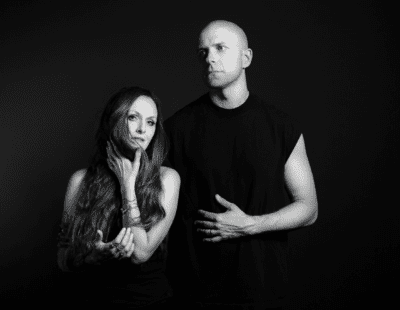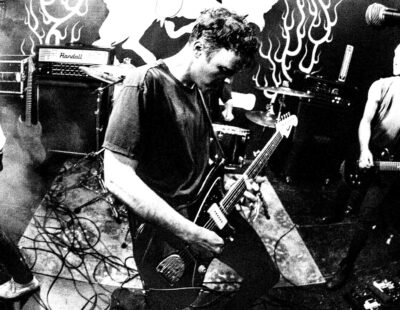
Though without a doubt one of the most inventive, vibrant, and interesting bands to explode out of the mid-90s metallic hardcore scene — not to mention earning a perch on nexus label Hydra Head — Geneva, Switzerland quintet Knut has never quite received the love or acclaim that its wild, visionary output would seem to warrant.
The tide might be about to turn, however, with the remastered re-release of the 1997 early salvo Leftovers — check out Kevin Stewart-Panko’s exclusive premiere of the track “Spit” from last month, in which he aptly notes Knut was “as metal as they were hardcore, as high-brow mathematical as knuckle-dragging Neanderthals” — and, as such, it felt like an apropos moment to wade into those frothy noisecore waves again to find out what Knut sees both looking back to shore and ahead to the horizon.
Happily, vocalist Didier Séverin and drummer Roderic Mounir were willing to oblige…
I love how assured and fully actualized Leftovers is — it feels both like Knut is tapping into this metallic hardcore zeitgeist and animating its own unique Frankenstein monster. I’m curious if you think it was easier to find that balance as a band that had this obvious spiritual connection to the growing subgenre but was nonetheless geographically quite separate?
Roderic Mounir: I like to think that we were a product of our times and also, somehow, a countereffect. Culturally speaking, the 90’s saw the rise of a whole new world of subgenres and micro-economies, expanding on a DIY modus operandi that emerged in the previous decade. On our level, we were building a critique and expressing discontent with the status quo that had shaped Western Europe since World War II. Young Swiss men were supposed to join the army, find a decent job and serve the consensus. Fortunately enough, alternative ways of thinking emerged, and bands like Celtic Frost and The Young Gods paved the way for radical sonic formulas.
Didier Séverin: It was pre-internet days, you would discover new music through friends and older siblings. I remember liking metal riffs sampled into industrial tech music, but I didn’t like any hard rock or metal bands until I discovered Pantera and Coroner, thanks to Philippe our first guitarist.
Obviously Bastardizer was the breakthrough moment for the band in the heavy underground consciousness, but the songs on Leftovers are just so wild, fiery and powerful. As an outsider, it has a very “flow state” vibe to it. Did this material surprise you at all as it came together? And did it seem to you at the time to be a watershed moment for Knut?
Didier Séverin: The “Leftovers” title was chosen because it was time to collect and document all the material written during our first two years of existence. We were learning to play together, it was more hard work and strain than a flow state vibe.
Roderic Mounir: It’s funny because our later albums such as Challenger were definitely in tune with the state of noisecore in the early 2000’s, the Deadguy, Coalesce and Converge vibe. Whereas Leftovers and Bastardiser were put together in a much more isolated fashion, a weird combination of our noise/indie roots –Melvins, Godflesh, Zeni Geva, Helmet, Today is the Day — and more extreme, riff-orientated inclinations — Eisenvater, Coroner, Carcass, Morbid Angel. A watershed it was, especially as a concrete achievement, our first self-recorded and self-released CD.
Has the perspective granted by the passage of time changed how you view the record at all? Or perhaps deepened your own appreciation for it? Or revealed depth or meaning you did not realize you were imbuing it with at the moment of creation?
Roderic Mounir: We were taking chances, doing a song like “This Side” built on a single riff, which would annoy our metal friends. Being free spirits at the risk of making mistakes — and we made many.
Leftovers set off a series of events that saw you sign to the premiere metallic hardcore label at the time, tour with a slew of amazing bands, and go onto spawn a influential body of work. How important was this record to your lives as individuals and as a band?
Roderic Mounir: Leftovers was crucial as it gave us confidence and also lauched our own label, Snuff Records.
Didier Séverin: Bastardiser was way more important in our explosion as Gregor Iwanoff from the Chrome Saint Magnus label — and former Acme drummer — asked Jacob Bannon of Converge to design a cover for the vinyl release. This was the first contact that triggered interest from Hydra Head Records, which was based in Boston at the time.
As a corollary, the nascent scene into which Leftovers arrived exploded not long after its release, shifting the heavy music landscape in profound ways. Was it exciting to be a part of that? Is it gratifying to look back on today? Is there anything you would do differently?
Roderic Mounir: As a music lover I’ve always been fascinated by the secret connections, rhizomes and unexpected influences. Why were hardcore kids and metalheads slandering prog rock fifteen years ago, when in fact Rush, Yes and King Crimson were crucial in the development of bands like Voivod, Enslaved, Mastodon or even Cave In? To me those influences were always important, but it took time until diversity was acknowledged and regarded as a plus point.
If you have any particular tour or studio memories from this era that are fun or relevant, I’d love to hear them!
Didier Séverin: We recorded Leftovers on ADAT, an eight track digital recorder on VHS tape, a revolution in the mid-nineties. We had to rewind the tape to listen to it. Prices for music equipment were pretty high at this time. Without the big discount we had because a couple of us worked in a music store, I don’t know how we’d have been able to pay for ADATs, mixing desk, mics, compressors, etc…
Finally, it has been a decade since the excellent Wonder record and Knut is listed as “on hiatus.” Does this reissue signal a possible resurrection? What is life like in a post-Knut world for all of you?
Didier Séverin: After Knut, I went down the rabbit hole of modular synthesizers and I’m now fully immersed in the world of drone with my project strom|morts. As my soul is more industrial than metal, I feel that I’m way more in my spot than ever before music-wise.
Roderic Mounir: I did a project called Brutalist with a couple of ex-Knut members, leaning towards a free-form metallic noise based on improv and texture instead of riffs. We recorded and uploaded a few tracks on bandcamp before calling it quits. Loud music has damaged my eardrums quite severely, so I’m pretty much done with it.







